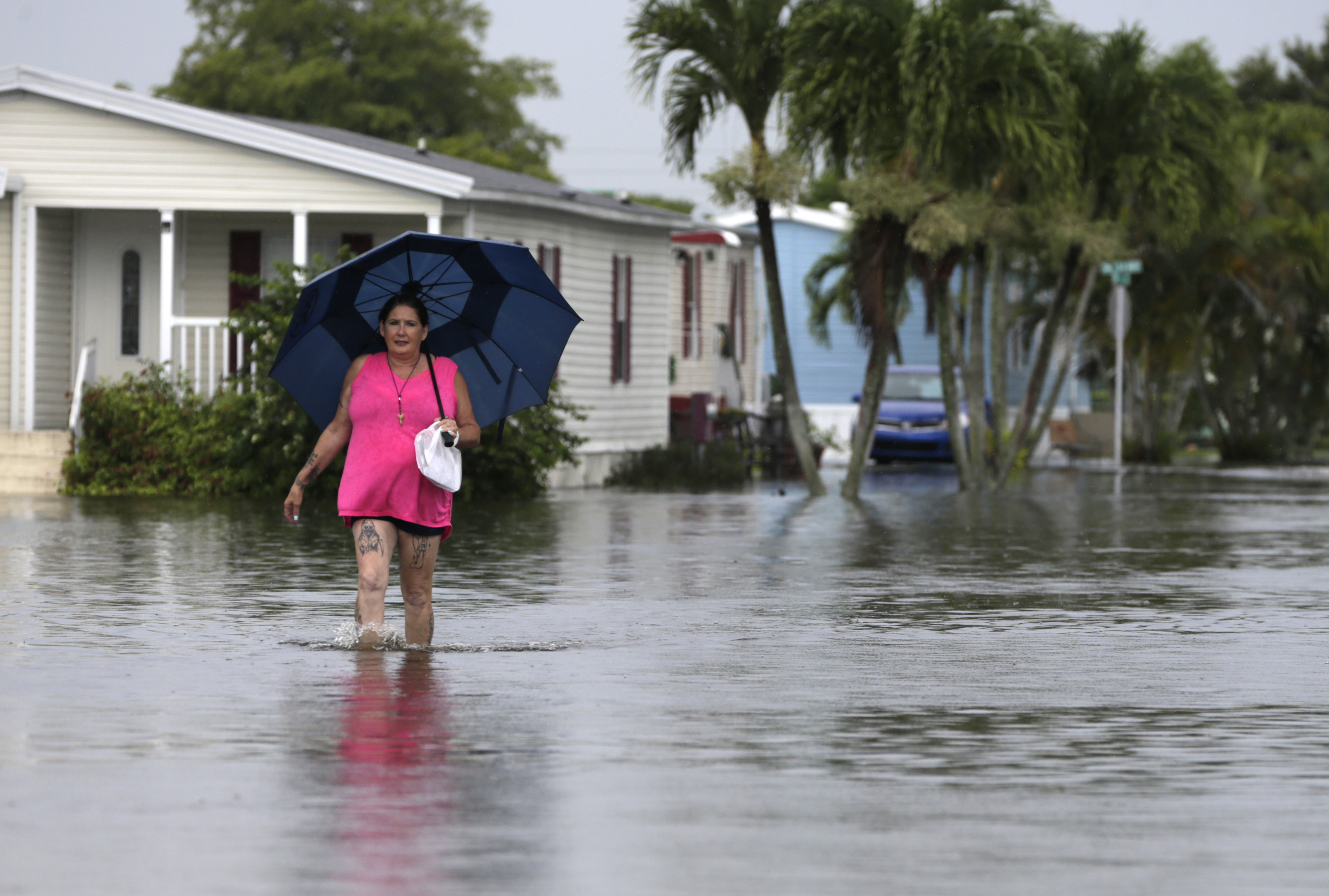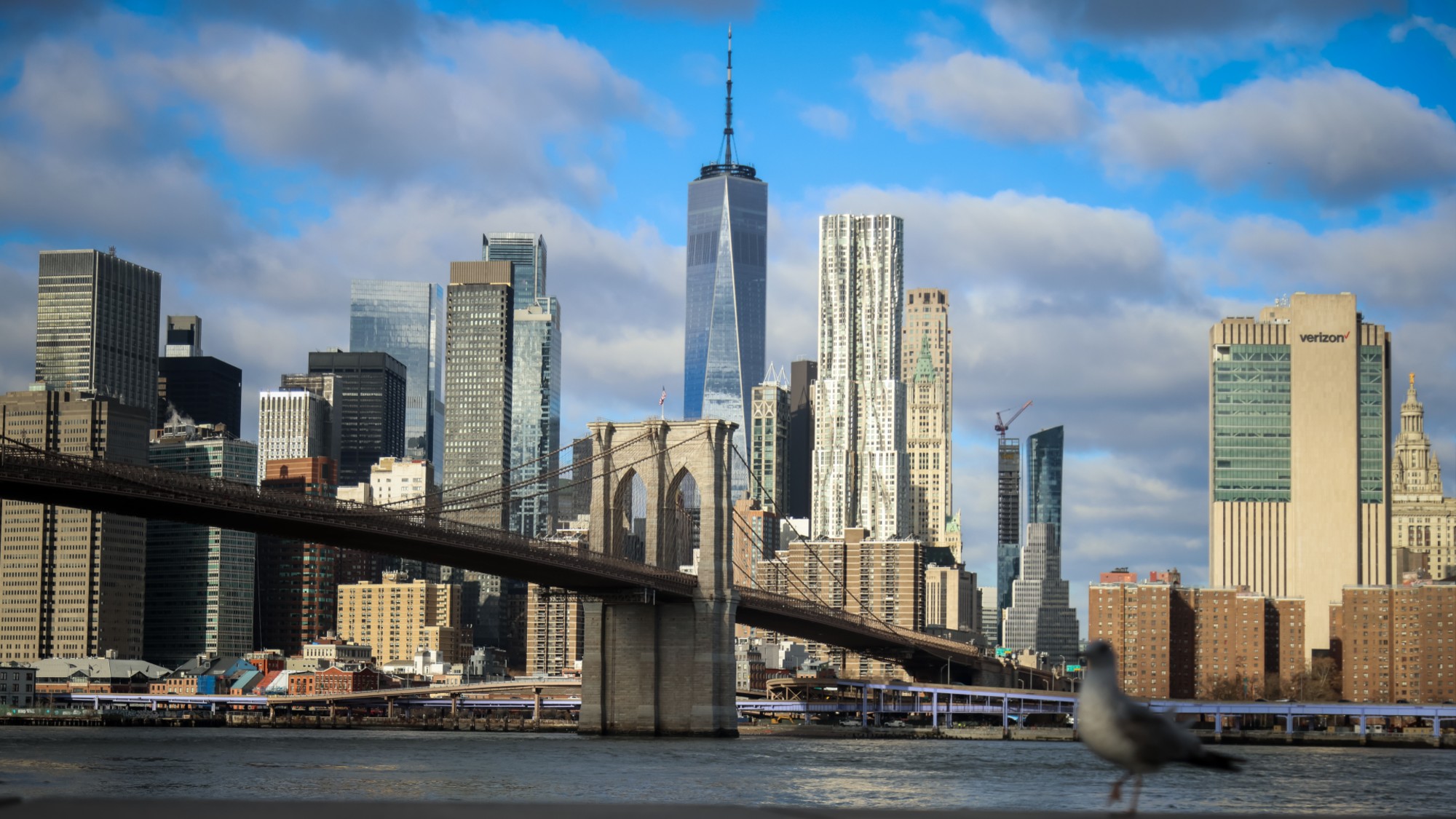How Hurricane Irma could destroy Florida's economy
We don't know for sure how bad Irma will be. But it has the potential to be really, really bad.


"This is a record-breaker. Unprecedented. Catastrophic."
That's how Jim Kossin, an atmospheric scientist at the National Oceanic and Atmospheric Administration, described Hurricane Irma to Wired.
At the time of this writing, Irma is a Category 5 hurricane, roughly the size of Texas, with top sustained winds over 185 miles per hour. It has already devastated Caribbean communities, and wreaked havoc on the U.S. territories of Puerto Rico and the Virgin Islands.
The Week
Escape your echo chamber. Get the facts behind the news, plus analysis from multiple perspectives.

Sign up for The Week's Free Newsletters
From our morning news briefing to a weekly Good News Newsletter, get the best of The Week delivered directly to your inbox.
From our morning news briefing to a weekly Good News Newsletter, get the best of The Week delivered directly to your inbox.
Now Irma is barreling toward Florida, with a population of 21 million and an economy worth $927 billion annually. Irma is projected to make landfall sometime this weekend. It might slam directly into the Florida peninsula, or cut north along the East Coast. But either case could be catastrophic: Irma is now one of the most powerful and dangerous hurricanes ever recorded in the Atlantic.
Hurricane essentials are flying off store shelves in Florida with such speed that Walmart and Lowe's are having trouble keeping up. Evacuations have already begun in Miami-Dade County and the Keys. And while the state has plenty of gasoline stored up, panicked citizens are still creating temporary shortages by lining up at gas station pumps in anticipation of Irma's arrival.
Florida Gov. Rick Scott (R) has already declared a pre-emptive state of emergency, announced that tolls would be suspended across the state, and activated 7,000 National Guard troops. President Trump also signed an emergency declaration freeing up additional federal resources.
Some estimates say Irma could inflict $125 billion to $200 billion in economic losses on Florida. By comparison, Hurricane Katrina — which devastated New Orleans in 2005 — did $160 billion in damage. Hurricane Harvey, which barreled into Texas barely a week ago, flooding Houston in the process, could cost $180 billion when all is said and done. Irma could potentially top them both.
A free daily email with the biggest news stories of the day – and the best features from TheWeek.com
The last Category 5 storm to hit the state was Hurricane Andrew in 1992, which killed 65 people and delivered a $26.5 billion hit in economic damage. But since then, Florida has changed in ways that make the state's economy and citizens far more vulnerable: Coastal development has roared in South and Central Florida since the 1990s, adding 6 million people and a wealth of expensive properties. As a result, were Hurricane Andrew to hit today, it would do $100 billion in damage. And that's accounting for the stricter building codes put in place after Andrew hit. (Some 70 percent of South Florida's buildings were constructed before the codes took effect.)
In this sense, Florida illustrates a paradox that's taken shape across the country: As America has continued to grow in resources and knowledge, we've improved our storm responses and cut way down (in most cases) on loss of life. At the same time, the shape of U.S. economic development has put far more people and property in harm's way. When you add in the risk multipliers of climate change — rising sea levels that make flooding worse, hotter ocean temperatures that create stronger storms, and the loss of ecosystems that provide natural buffers against hurricanes — things look downright ominous.
"A direct hit from Irma could disrupt rail and container activity, and damage infrastructure for transportation, in addition to putting thousands of lives at risk," wrote Roberto Friedlander, head of energy trading for Seaport Global Securities. "Combined with rainfall, then we are looking at catastrophic flooding to a vast area that already has problems with water levels. Real estate risks are simply gigantic."
Real estate is also far from the only economic sector Irma could devastate.
Tourism is Florida's single biggest industry, providing almost a fourth of the state's sales tax revenue. Thanks to Irma, local hotels are already seeing both a rash of cancellations and an influx of evacuees. Theme parks are already refunding loads of tickets, and cruise ships are facing delays and canceled departures.
Florida is also America's second biggest agricultural state, just behind California. Florida is home to one-tenth of all U.S. land devoted to producing fresh fruit and vegetables. It's a top supplier of oranges, grapefruits, cucumbers, squash, and more. All told, agriculture, fishing, and horticulture contribute almost $150 billion annually to Florida's economy.
Irma's timing is at least somewhat fortuitous: Many winter crops have yet to be planted, and others are still early enough in the growing season and thus small enough that they could escape with minor damage. But the state's orange crop has already been gripped by disease over the last few years, leaving it in a vulnerable position. Futures on oranges and other crops are already spiking as investors panic over the storm.
"If [Irma] goes up the peninsula the way some forecasts project, it will do a tremendous amount of damage," Tom Spreen, a professor at the University of Florida, told CNN. "I don't want to get too dramatic and say this will be the end of Florida's citrus industry, but it'd be a big blow."
And of course, more important than all the economic numbers are the human lives at stake. Every bit of cropland destroyed is someone's livelihood; every home flooded is a family's past and future; every dollar of property damage also hides the potential loss of someone's life. Harvey has killed 70 people so far, and that number will probably rise. Far worse was Katrina, which ended over 1,800 human lives.
It seems unlikely that Irma could rival the latter's murderous capacity. Katrina's death toll was due to a horrendous mix of bad infrastructure planning, entrenched poverty, and gross neglect stemming from America's long history of racism and segregation. But Florida has not seen anything like Irma in a very long time. Chuck Watson, a disaster modeler with Enki Research, told Bloomberg that "thousands of lives" could be lost.
"This is not going to be the big slow-motion flood like Harvey — this is a real, honest-to-God hurricane."
It is also an unsettling reminder that for all of America's power, we remain very much at Mother Nature's mercy.
Jeff Spross was the economics and business correspondent at TheWeek.com. He was previously a reporter at ThinkProgress.
-
 Venezuela’s Trump-shaped power vacuum
Venezuela’s Trump-shaped power vacuumIN THE SPOTLIGHT The American abduction of Venezuelan President Nicolás Maduro has thrust South America’s biggest oil-producing state into uncharted geopolitical waters
-
 Most data centers are being built in the wrong climate
Most data centers are being built in the wrong climateThe explainer Data centers require substantial water and energy. But certain locations are more strained than others, mainly due to rising temperatures.
-
 ‘Maps are the ideal metaphor for our models of what the world might be’
‘Maps are the ideal metaphor for our models of what the world might be’Instant Opinion Opinion, comment and editorials of the day
-
 The pros and cons of noncompete agreements
The pros and cons of noncompete agreementsThe Explainer The FTC wants to ban companies from binding their employees with noncompete agreements. Who would this benefit, and who would it hurt?
-
 What experts are saying about the economy's surprise contraction
What experts are saying about the economy's surprise contractionThe Explainer The sharpest opinions on the debate from around the web
-
 The death of cities was greatly exaggerated
The death of cities was greatly exaggeratedThe Explainer Why the pandemic predictions about urban flight were wrong
-
 The housing crisis is here
The housing crisis is hereThe Explainer As the pandemic takes its toll, renters face eviction even as buyers are bidding higher
-
 How to be an ally to marginalized coworkers
How to be an ally to marginalized coworkersThe Explainer Show up for your colleagues by showing that you see them and their struggles
-
 What the stock market knows
What the stock market knowsThe Explainer Publicly traded companies are going to wallop small businesses
-
 Can the government save small businesses?
Can the government save small businesses?The Explainer Many are fighting for a fair share of the coronavirus rescue package
-
 How the oil crash could turn into a much bigger economic shock
How the oil crash could turn into a much bigger economic shockThe Explainer This could be a huge problem for the entire economy
